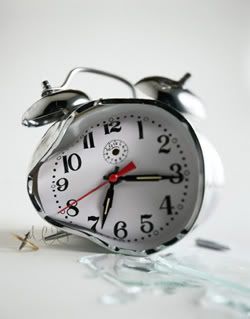
It's official: Daylight Saving Time is a bust. Designed (and recently extended) as a measure to save energy in a period of inflated electricity prices, an in-depth University of California study has now shown that DST doesn't save anyone any money at all. In fact, it's costing consumers extra, to the tune of $3.19 in extra utility bills per year.
The study was made possible because of the peculiarities of the state of Indiana, which was only partially on DST until 2006. When the whole state finally went DST (to sync with the national business day), some comparisons vs. the prior method were made apparent. The study calculated that the shift costs Indiana residents an extra $8.6 million in electricity bills in total.
Why? Shouldn't they be, well, saving daylight -- and burning fewer light bulbs?
They are, said the study. But while lighting bills were reduced, air-conditioning units had to run more often, because people were home on hot afternoons when they'd otherwise be still at the office. Heaters had to be run on cool mornings, too, when people got up and it was still dark outside.
Professor Matthew Kotchen, who pioneered the study, noted, "I've never had a paper with such a clear and unambiguous finding as this."
This isn't the first time the energy-saving rationale of Daylight Saving Time has been attacked. The first was in 1976, when the National Bureau of Standards found that there was no significant energy savings after the switch. The recent expansion of DST to a few extra weeks was also revealed to have saved no energy during its run. And yet here we are...
In related news, it was also revealed that Daylight Saving Time actually creates no additional daylight.

No comments:
Post a Comment